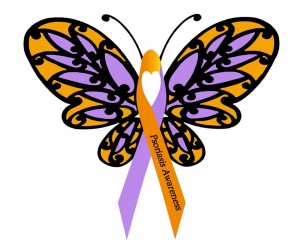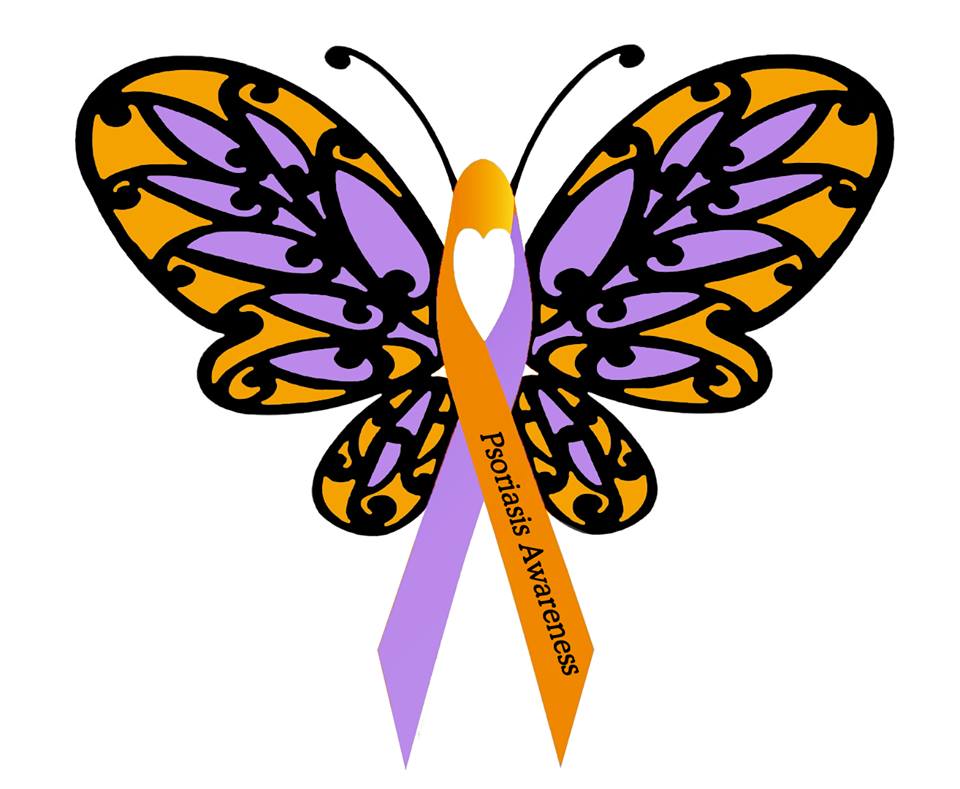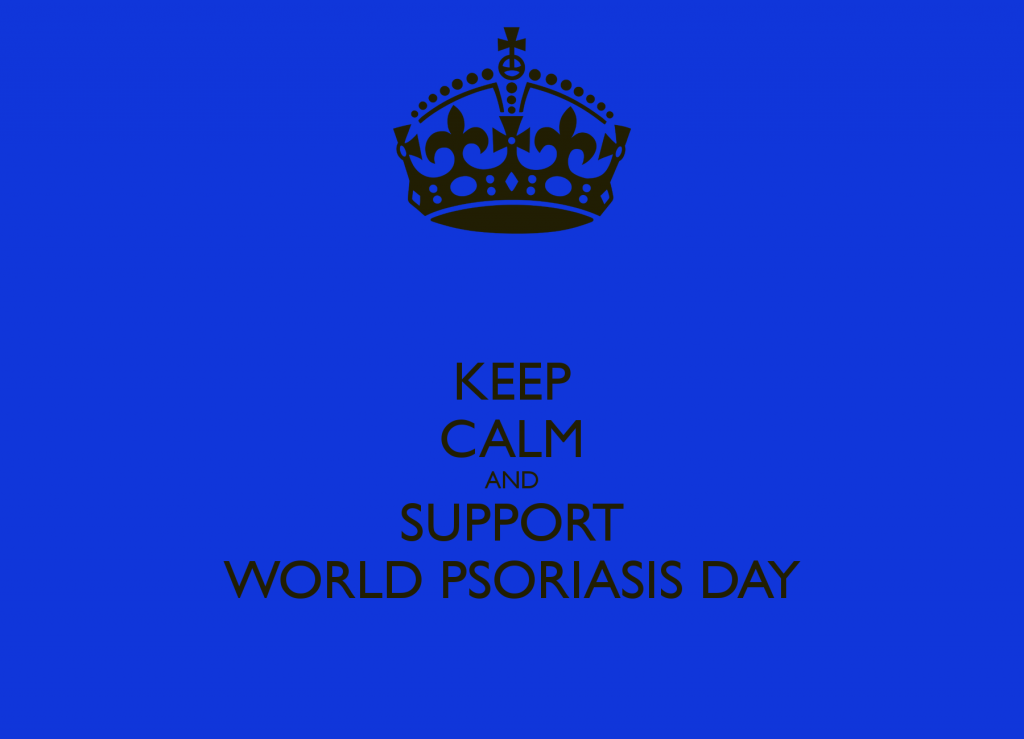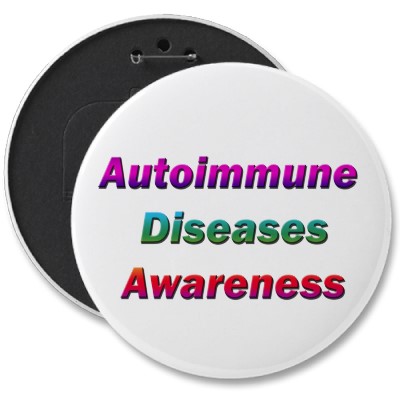New data just released today show that huge numbers of people with psoriasis
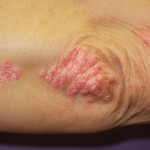
Psoriasis
are being managed with repeat prescriptions and are not going to see their GP to discuss their treatment. Not accessing the best advice and treatment could leave these patients on out-of-date treatment regimens, and potentially at risk of long-term health problems,2 frustration, stress and unhappiness.3
Half of the psoriasis patients questioned were on a repeat prescription,3 locking them into a cycle of poor disease management.When asked about their repeat prescriptions, almost one third of patients felt at a disadvantage because they felt they had less opportunity to speak with their GP or try other treatment options to help them manage better.1
Psoriasis is a common condition affecting 1.8 million people in the UK.4 More than just a dry skin condition, psoriasis is a chronic immune disease that affects patients over a number of years, sometimes from childhood.5 Psoriasis is associated with an increased chance of developing other serious conditions such as psoriatic arthritis, heart disease, high blood pressure, diabetes and some cancers.2,5,6,7 The condition can also have a significant physical, psychological and social impact on sufferers, and can limit their work opportunities and income.8
The significant burden of the condition, its health risks, and the associated discrimination experienced by patients have recently (May 2014) been recognised by the World Health Organization in the form of a historic resolution on psoriasis. The resolution aims to combat the stigma attached to psoriasis, improve disease information and improve patient access to care.9
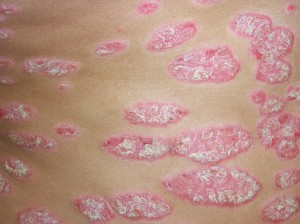
Psoriasis 2
The Psoriasis: Think Twice campaign was created to address the significant patient need and is supported by a Working Group of experts in the field of psoriasis care. The Working Group contains patients and healthcare professionals, including a Clinical Psychologist, Pharmacist, GP, Medicines Manager and Consultant Dermatologist, as well as a representative of the British Dermatological Nursing Group and the Primary Care Dermatology Society.
As well as a massive impact on a patient’s well being and quality of life, poorly managed psoriasis also has huge financial implications. A LEO Pharma survey showed that 80% of people with psoriasis buy over-the-counter products as well as their prescription to try and improve their symptoms.10 In addition to the burden faced by patients, poor control of chronic conditions such as psoriasis also costs the NHS an estimated £500 million per year in resulting complications and additional medical interventions.11
Championed by psoriasis patient Jessica Gough, Psoriasis: Think Twice equips people with psoriasis with the tools and information they need to talk to their doctor about the physical and psychological impact of their condition. Psoriasis: Think Twice will help patients think twice about what they can be doing differently, and how they can access the benefits of a review – allowing them to take ownership of their care.
PatientTalk.Org have interviewed Dr Anthony Bewley to created a Psoriasis FAQ. Dr Anthony Bewley is Dermatology Consultant with a special interest in Psoriasis.
What is psoriasis?
Psoriasis is a largely genetic condition. You’re born with the likelihood to get psoriasis and then certain things can trigger it, like stress or even something like a sore throat.
What causes it?
We don’t really know what causes psoriasis. We know it’s a complex interaction between skin and the nerves in the skin and the immune system in the skin. And that’s why people who get psoriasis often find that stressful life events seem to trigger the psoriasis.
How can it be treated and with what kind of success?
The aim of treatment is to get the patient as clear as we possibly can. We know that we can’t
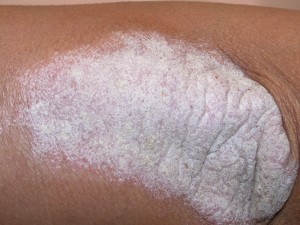
Psoriasis 3
cure psoriasis because it’s a genetic condition but the aim is to get the patient as cleared as they want to be and usually we can get the patient completely cleared of their psoriasis. The treatment that we have available for psoriasis we try and tailor to the needs and the lifestyle of the patient. That can include creams, photo-therapy, which is ultra violet light treatment, or tablets or injections. What we know is that there’s lots of new things that appear regularly that we can treat our patients with, so there are always advances in the management of psoriasis.
What impact does is have on lifestyle?
We know that living with psoriasis matters hugely for our patients. It really affects their self-esteem and their confidence. Some patients feel depressed or anxious – or both – when they get psoriasis and unfortunately some people feel so isolated and fed up with it that they consider suicide.
Is the current provision adequate to meet the patients’ real needs?
We always think as healthcare professionals that we can do more. And that is certainly the case. All too often I have patients who tell me they’ve been to see a healthcare professional and they’ve been told it’s just psoriasis, it’s only your skin. And I think that’s unacceptable. We’ve got lots to learn from our patients, and I think that things are being done to improve the care of patients who have psoriasis. There are newer treatments being made available every year and greater ways of supporting patients who have psoriasis.
How well trained are HCPs and what is the quality of the support they provide?
Healthcare professionals are aware of psoriasis but the training in primary care, in management of skin disease is not very good. The training that you get in medical school and after medical school in the management of dermatological conditions is not particularly great. That’s being addressed by organisations such as my own – The British Association of Dermatologists – but even then there is lots to learn from healthcare professionals about how to manage patients with psoriasis.
Why are patients being failed so badly?
I don’t think patients are being failed necessarily. It’s just that are things that we can do better and there are things that we can do more of. My message to patients who live with their psoriasis is first of all, don’t suffer in silence; access healthcare professionals. There are things that can be done for your psoriasis.
What other forms of support are available for healthcare professionals and patients?
What healthcare professionals need to do is to first of all make sure they are trained in how to look after patients with psoriasis. And there are training modules that you can access as a healthcare professional, either through post-graduate centres or online. Psoriasis patients can access support group information from organisations such as the Psoriasis Association and there is also a new website that myself and a group of people, with the help of LEO Pharma, have generated which is called www.psoriasisthinktwice.co.uk where the aim is to try and empower patients so that they can get the most from their consultations with their GP.
About psoriasis
Psoriasis is a common condition that affects between 2% and 3% of the UK population, or 1.8 million people. Psoriasis affects males and females equally and can affect a person at any stage of their life. Psoriasis is an immune condition, which causes symptoms on the skin and sometimes the joints. More specifically, it is the build up of skin cells which form raised ‘plaques’ on the skin causing flaky, scaly, itchy patches.4,5
Psoriasis: Think Twice surveys
Two surveys were conducted to generate the Psoriasis: Think Twice data. A survey of 2,067 members of the general public investigated personal attitudes towards medicines usage and repeat prescribing, while a survey of 501 adult psoriasis patients addressed specifics regarding the management of their condition. All 501 psoriasis patients interviewed were being treated by a GP and currently receiving a topical treatment. The sample size was identified and validated by an independent market research company as a robust sample based on the total number of people with psoriasis in the UK.
Key survey findings:1,3
- 1/3 of psoriasis patients haven’t had treatment reviewed for at least five years
- 1/2 of psoriasis patients are on a repeat prescription
- Almost 60% of psoriasis patients on a repeat prescription felt at a disadvantage
- Only just over 1 in 10 patients have their treatment reviewed by their GP when they need a new prescription
Psoriasis: Think Twice Working Group
Psoriasis: Think Twice was developed with the support of a range of experts involved in helping people with psoriasis, including a dermatologist, pharmacist, nurse and GP. By working with representatives from groups such as the the British Dermatological Nursing Group and the Primary Care Dermatology Society, Psoriasis: Think Twice will equip patients with the tools and information they need to take control of their disease.
QualityCareTM
In addition to Psoriasis: Think Twice, LEO Pharma has developed The QualityCareTM Psoriasis Patient Support Services, a free, multi-channel programme designed to help people with psoriasis to play an active role in managing their condition, regardless of whatever treatment they are using, and in collaboration with their health care professionals.
Individuals using the QualityCareTM Psoriasis Patient Support Services receive personalised support via a range of different channels, including online, text messages, and emails. Personal profile data are processed by an electronic system and the support content is tailored to the individual. When an individual’s profile changes, so does the support.
WHO Resolution on Psoriasis
For more information visit: www.ifpa-pso.org
References:
- Opinion Matters Survey, Patients with Psoriasis Receiving a Repeat Prescription, LEO Pharma data on file, May 2014
- Ahlehoff O, Gislason GH, Charlot M, et al. Psoriasis is associated with clinically significant cardiovascular risk: a Danish nationwide cohort study. J Intern Med. 2011;270(2):147-157
- Opinion Matters Survey, Patients with Psoriasis, LEO Pharma data on file, May 2014
- The Psoriasis Association. (2012). About Psoriasis. Available: https://www.psoriasis-association.org.uk/. Last accessed 02 May 2014
- Schön MP, Henning Boehncke W. Psoriasis N Engl J Med 2005; 352(18): 1899-912
- 6. Pouplard C, Brenaut E, Horreau C et al. Risk of cancer in psoriasis: a systematic review and meta-analysis of epidemiological studies. J Eur Acad Dermatol Venereol 2013; 27(Suppl. 3): 36–46
- Pariser DM, Bagel J, et al (2007). National Psoriasis Foundation clinical consensus on disease severity. Arch Dermatol; (143), 239-42.
- D Butler, R Gupta, E Levin, M Huynh, A Leon, J Koo. (2013). Psoriasis and quality of life. Hong Kong J. Dermatol. Venereol. . 21 (1), 64-68
- UK Burden of Psoriasis and Treatment Survey, LEO Pharma data on file, July 2011
- Trueman, P., Taylor, D.G et al (2010). Evaluation of the scale causes and costs of waste medicines. Report of DH funded national project. York: 1. York Health Economics Consortium
Images are published with the permission from the New Zealand Dermatological Society Incorporated (or dermnetnz.org).
